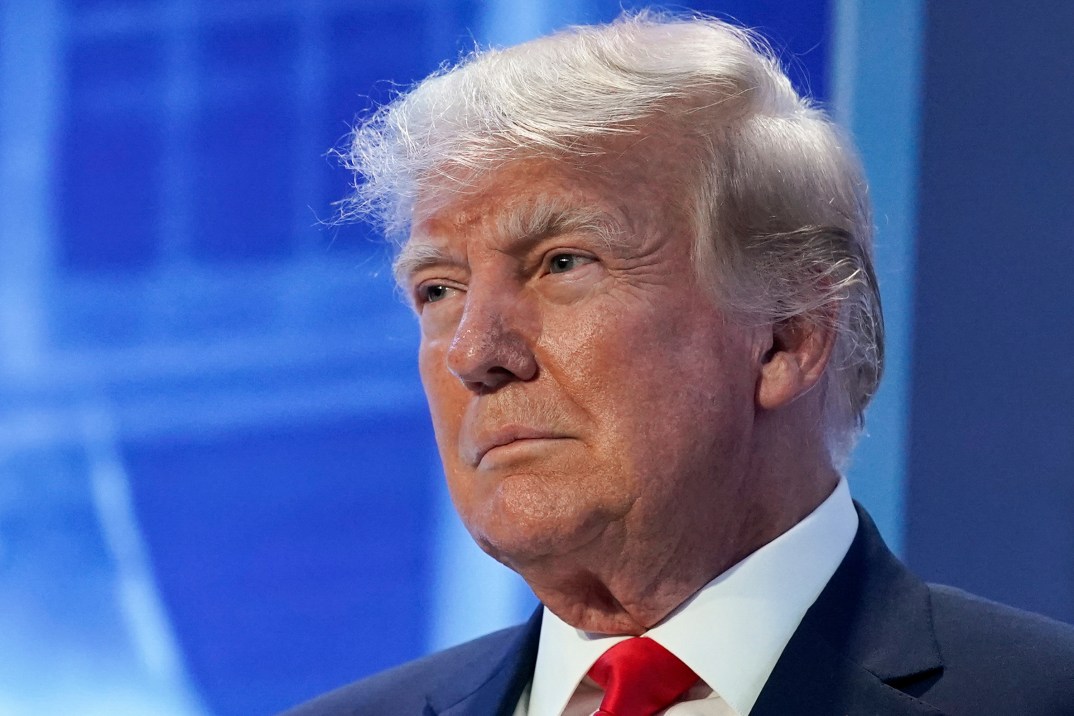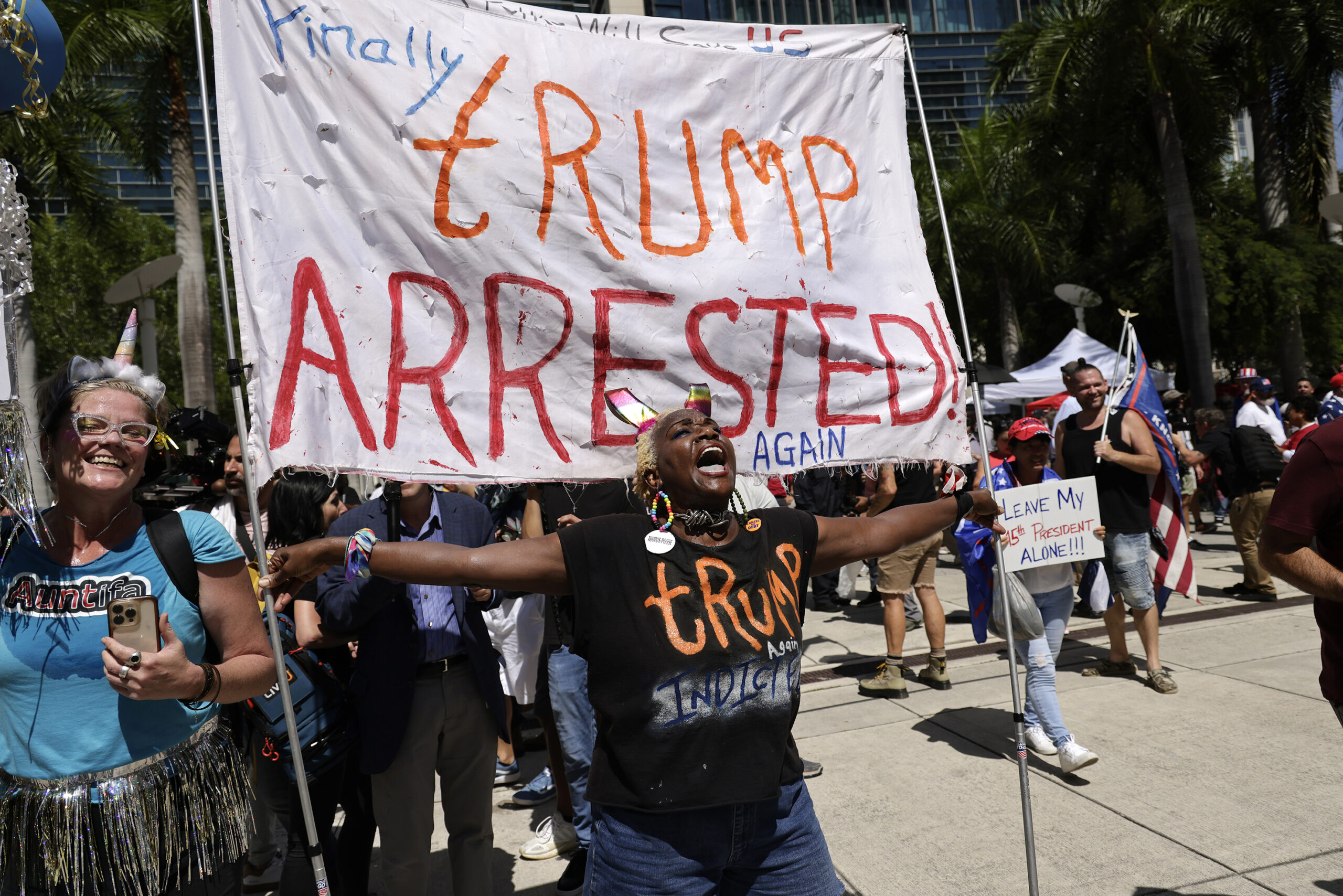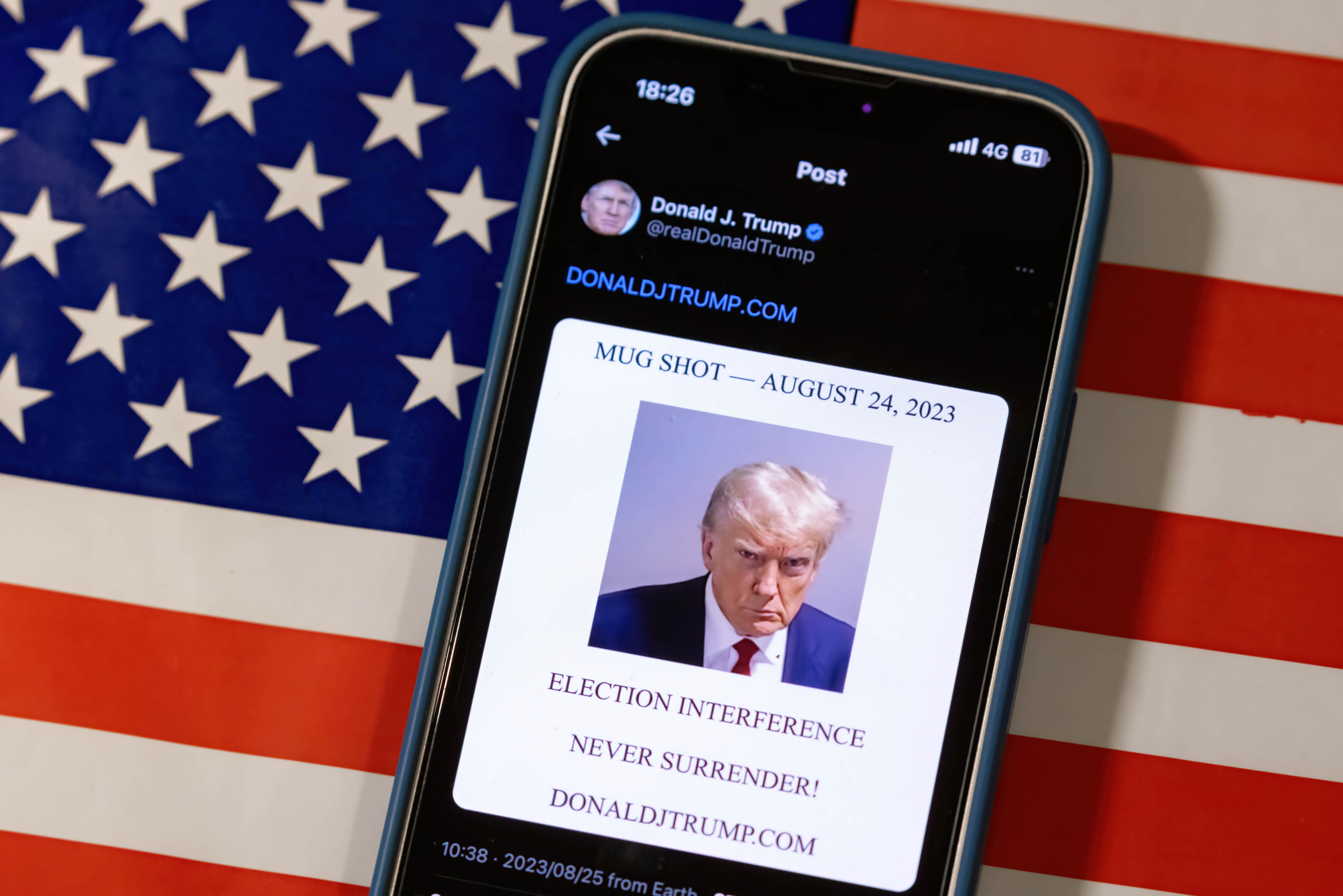Trump’s actions in Georgia were an attack on Black political power — and nothing new.
OPINION: Each of the former president's efforts to overturn the 2020 election results in Georgia were attempts to curtail the growing political power of Black voters in our country’s newest swing state.

Editor’s note: The following article is an op-ed, and the views expressed are the author’s own. Read more opinions on theGrio.
Last month, a grand jury in Fulton County, Ga., indicted former President Donald Trump, charging him with 13 felonies related to his attempts to overturn the results of the 2020 presidential election — an election that, for all intents and purposes, was decided by Black voters in Georgia. After the race was called, the then-sitting president launched his multi-pronged, conspiratorial strategy — what we now know as the “Big Lie” — to sow division, spread fear and undermine the clear will of voters, specifically Black voters in Georgia who turned out overwhelmingly for Joe Biden. The former president’s actions, especially in Georgia, were a direct response to this demonstration of Black political power.
From the racial terror inflicted by confederate sympathizers in the aftermath of the Civil War to the Ku Klux Klan of the early 20th century to segregationists in the ’50s and ’60s to current “Make America Great Again” sycophants in GOP-controlled state legislatures, including here in Georgia, white supremacists’ attacks on growing Black political power are nothing new. The former president’s actions to overturn the results of the 2020 election in Georgia is just one in a string of backlashes — or rather, whitelashes — dating all the way back to Reconstruction. The formula is simple, albeit no less appalling. When we win, they attack.
Reconstruction is known for being a time of progress for Black Americans, especially in the South. Between 1869 and 1872, voters elected the first Black members of the U.S. Senate and House of Representatives from Mississippi and South Carolina, respectively. That same year, the 15th Amendment extended the right to vote to Black men. But it wasn’t long before white supremacists, particularly in former confederate states, interpreted the growth of Black political power as a threat to their own. For the white men in power who kept a boot on the neck of an entire race of people since the founding of our country, it was unfathomable that those same people would employ their newfound power in an attempt to govern with grace and fairness.
By now, we are familiar with the swift and ferocious backlash that came next: Jim Crow segregation, poll taxes and literacy tests, and devastating lynchings and race massacres. In September 1906, a white supremacist pissing contest between two gubernatorial candidates in Georgia led to the Atlanta Race Riot of 1906, where dozens of Black people were killed. The two white candidates both ran on platforms of Black disenfranchisement, spreading fears that Black Georgians were coming for white safety, white women and children and white votes. (Sound familiar?)
Fourteen years later, dozens of Black folks were killed in Ocoee, Fla., in what’s considered America’s deadliest Election Day massacre just because a Black man named Moses Norman tried to vote. (It’s worth noting that Ron DeSantis, current governor of Florida and GOP candidate for president, has enacted new standards for teaching Black history — including what happened in Ocoee — in Florida’s public schools, ensuring that blame also be placed on the Black victims of this heinous violence.)
The Civil Rights Movement ushered in desegregation, the Civil Rights Act of 1964, and other landmark policies as a result of large-scale organizing by Black activists. The state-sanctioned response? Violence and brutality. The image of a young John Lewis and Hosea Wiliams leading 600 marchers across an Alabama bridge named for a KKK grand dragon, demanding justice and equal access to the ballot box, only to be met with police batons and boots, is now well-imprinted into our collective memory.
This targeted racial terror against Black people’s participation in our democracy was, and continues to be, intentional. What was once the overt racial violence of lynchings, police dogs and water hoses, now takes a more insidious path in the form of modern-day “election integrity” (read: voter suppression) laws, felony disenfranchisement, and, yes, the Big Lie.
Each of Trump’s attempts to overturn the 2020 election results in Georgia — his taped call to Secretary of State Brad Raffensperger, assembling a slate of fake electors, stealing elections data in a rural Georgia County, and falsely accusing Black elections workers of wrongdoing — were efforts to curtail the growing political power of Black voters in our country’s newest swing state. Every rallying cry of election fraud and “stop the steal” was an attempt to invalidate the votes of the Black Georgians who decided the 2020 Presidential race and sent Trump packing back to New York.
Some might argue that the comparison of Trump’s actions to overturn the results of the 2020 election to the racially motivated violence and terror of our country’s past is inaccurate hyperbole. I’d remind those critics that one day after Georgia voters elected our state’s first Black U.S. senator, a white supremacist mob clad with confederate flags, racial slurs and pro-Trump signs-turned-weapons stormed the U.S. Capitol. The same day, in a lesser-known tale of contemporary racism, a pro-Trump, armed militia rallied outside the Georgia State Capitol, while a well-known white supremacist and ex-Klan member roamed around inside looking for Raffensperger, who, a few weeks earlier, had refused to “find” the 11,780 votes Trump asked him for.
Elections in Georgia are won on the margins. That margin of 11,779 votes that secured President Biden’s victory is because Black Georgians showed up. This is exactly why Donald Trump chose Georgia over Arizona, Wisconsin or any other swing state where the results were close. This powerful white man chose Georgia thinking a Southern state, given the region’s history of oppression, would be on board with steamrolling Black voters. He thought wrong.
We are resilient, and, having learned from our history, we were ready — not only for Trump’s attacks on our power but also for the petulant sour grapes of the Republican white men in our state government. Yes, Georgia Secretary of State Raffensperger, and Gov. Brian Kemp stood up to the former president that one time in that one phone call, but they are also responsible for orchestrating their own attack on Black political power in Georgia. They are the architects of SB 202 — a voter suppression law enacted in March 2021 specifically to chip away at our freedom to vote. For anyone praising these two for not giving in to Trump’s pressure, I want to remind you that Kemp’s and Raffensperger’s actions, like those of Trump, are rooted in white supremacy with the specific goal of regaining and retaining white political power.
It’s specifically because we are so powerful that these attacks keep happening; they wouldn’t come for us if they weren’t scared. Throughout history, despite these repeated attacks on our power, we have continued to fight and continued to show up. This is what we will need to keep doing if we want to continue growing our power and chipping away at the racist structures still very present in our society. The 2024 election cycle is an opportunity for us to do just that.
Trump’s indictment in Fulton County is a form of retribution for Black voters, especially in Georgia. I urge us all to call his actions what they are: a whitelash against the power we have always had and that can never be taken away. Let’s use that as fuel throughout 2024 to show that we cannot and will not be deterred from deciding the future of our country. Black voters, especially in a state like Georgia, will, again, determine the outcome of the presidential race next year — if we show up. For me, the choice is clear: We must.

Kendra Cotton is the chief executive officer of New Georgia Project Action Fund and its affiliated organization, New Georgia Project. She is a lifelong Southerner and has spent her professional career promoting civic engagement and advocating for underrepresented communities to become more involved in our democracy.
TheGrio is FREE on your TV via Apple TV, Amazon Fire, Roku and Android TV. Also, please download theGrio mobile apps today!


